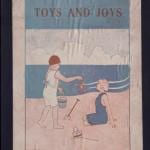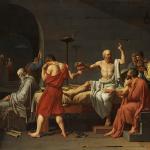 As a little boy, the older folks would sit and pass down to us the oral tradition. They gave us stories, the reasons we were the people we are. The stories were true, though often the details were pared down to the essence. Some facts might be forgotten or jumbled, but the tales were true to the experience of the folks. They told us where we had come from, where we were, and where we might be going. Why had we fought for the Union in the Civil War? How did we end up in western Virginia? What was life like during the Depression? How did Dupont make a river so dirty it caught on fire? Why did Carbide not give masks to workers dealing with asbestos?
As a little boy, the older folks would sit and pass down to us the oral tradition. They gave us stories, the reasons we were the people we are. The stories were true, though often the details were pared down to the essence. Some facts might be forgotten or jumbled, but the tales were true to the experience of the folks. They told us where we had come from, where we were, and where we might be going. Why had we fought for the Union in the Civil War? How did we end up in western Virginia? What was life like during the Depression? How did Dupont make a river so dirty it caught on fire? Why did Carbide not give masks to workers dealing with asbestos?
The personal stories were framed in the life of our region, the state, the nation, and most vitally the Church universal. Salvation history began with creation and would end in the consumption of all things. History was headed someplace and that place was Paradise. The world was full of different peoples and all would be gathered together.
If we are not careful, then the photograph will replace the painting, the captured images on our devices the story on a summer porch. The photograph and video do contain truths and these must not be denied, but they cannot capture the whole truth of our experience. A video of a children’s performance of a play will show part of what happened, but not the interaction between parents and their children performing. The video reproduction lies if we ask it to tell what the performance meant at the time to those there.
There is no way to capture the fifth grader who hits the note, strikes the pose, and does so before a family he loves. The rest of us can watch the video, but we are not merely missing the emotion of the moment, but the myth: the account of how that event fit into the family lore. The Dad and Mom, or best the Grandpapa and Grandmama, would digest the day and give us an account of how this glorious success fits into the family. “That was like your Uncle Bob when he. . .” And you are glad, because Uncle Bob (out West) is a legend in his own right and perhaps you can carry on a bit of the tradition.
So it goes.
Pity the person who is so numb to life or so deprived by mass marketed culture that they cannot hear the story of a personal family history.* The oral culture began with the authentic sound of music sung by old men and women untouched by marketing, music truly of the people, and not homogenized popular music. Wherever I have gone from Scotland to Mongolia, I have waited for the voice of the old, the wise, the culture that had not yet faced the horrors of homogenization. You cannot appropriate, borrow, or have forced on you a mythic life. Instead this tale comes to us authentically in the voices of Granny, Nana, Papaw, parents, and the culture they created.
This is so ancient to culture East and West that we can look to Homer in Odyssey having that great epic hero Odysseus report:
“My Lord Alcinous, what could be finer Than listening to a singer of tales Such as Demodocus, with a voice like a god’s? [5] Nothing we do is sweeter than this— A cheerful gathering of all the people Sitting side by side throughout the halls, Feasting and listening to a singer of tales, The tables filled with food and drink, [10] The server drawing wine from the bowl And bringing it around to fill our cups. For me, this is the finest thing in the world.**
He told Alcinous tales, his history as he recollected that history, and made his journey meaningful. The man of many sorrows digested that sorrow and gave that pain meaning. That is what my Nana could do with the pain in her life: put that sorrow in a larger context, a global vision, and give us hope. If not the finest thing in the world, that ability is very fine.
To live in Christ participating in His Church is to live within a myth and find a legendary life.
————————–
*I greatly value the contribution of professional historians to getting the story right. I am not discussing that field. Practitioners teach me daily!
**Homer; Lombardo, Stanley; Murnaghan, Sheila. Odyssey (Translated & Annotated) IX 5-15 (p. 125). Hackett Publishing. Kindle Edition.












